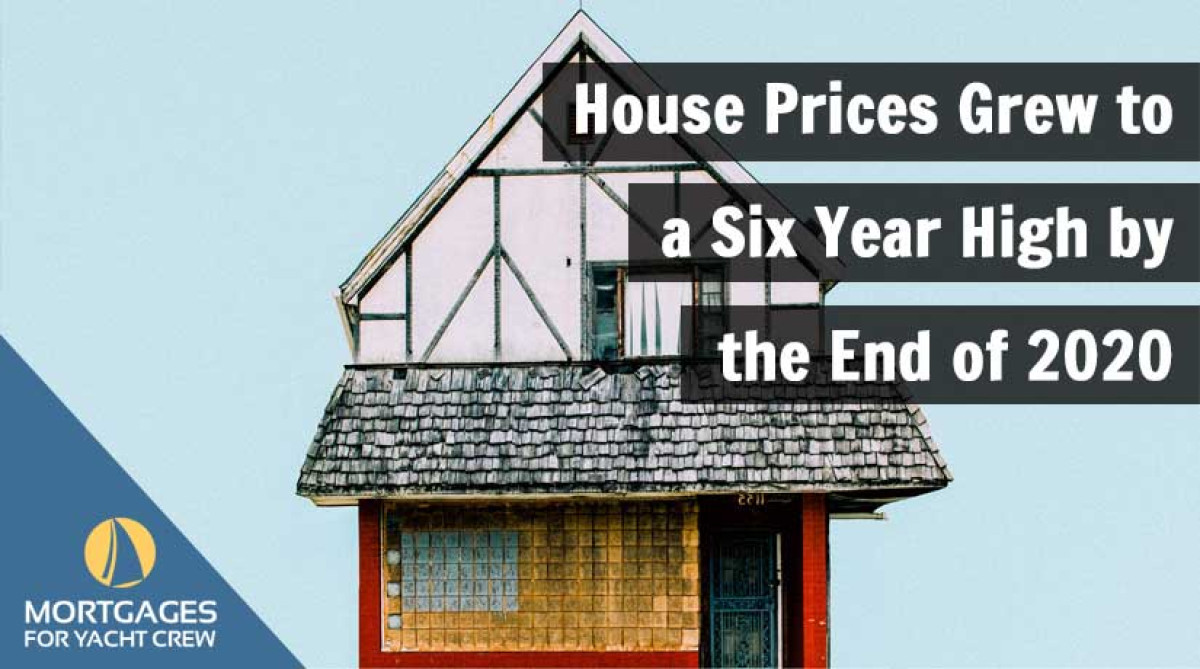House Prices Grew To Six Year High By End of 2020
- Authors
-
-

Despite the UK being in the grip of the worst national disaster since World War II, house prices have continued to rise month on month to reach a six year high of 7.3% in December 2020, up from 6.5% in November, as confirmed by the latest Nationwide house price index.
This is 5.3% higher than they were in March when Covid first hit the UK.
Read on to find out more or click a link below to jump chapter.
Chapters
Where Was Growth Seen?
There was growth in all regions in England, although the Outer South East region saw prices escalate from a 1% decline in 2019 to an 8% rise in 2020.
Conversely, the adjoining Outer Metropolitan region performed worst across the country, although prices still rose by 5.6% over the year.
Average house prices in London have now reached their highest ever at £486,562 after a 6.2% increase.
Northern England also saw annual price growth in the fourth quarter, with the North West and Yorkshire & Humberside seeing rises of 8.0% and 7.7% respectively.
Wales also saw prices rise by 6.6% and Northern Ireland saw a 5.9% increase.
However, Scotland saw the lowest home nation growth, with prices only rising 3.2% in 2020 in contrast with 2019, where it had the highest annual rises with 2.8% growth.
source: tradingeconomics.com
Mortgage Approvals
Mortgage approvals also peaked in October with a ten year high of 47% above the monthly average from 2019.
And by the end of October, the 2020 mortgage approvals figure was only 7% less than the total recorded over the same period in 2019.
Nationwide's Chief Economist, Robert Gardner, said:
"The resilience seen in recent quarters seemed unlikely at the start of the pandemic. Indeed, housing market activity almost ground to a complete halt during the first lockdown as the wider economy shrank by an unprecedented 26%."
"But, since then, housing demand has been buoyed by a raft of policy measures and changing preferences in the wake of the pandemic."
"The furlough and Self Employment Income Support schemes provided vital support for the labour market, while a host of measures helped to keep down the cost of borrowing and keep the supply of credit flowing. The stamp duty holiday also stimulated housing demand, by bringing forward peoples’ home-moving plans. Lenders also responded by offering payment holidays to borrowers impacted by the pandemic, helping people stay in their homes rather than potentially being forced to sell."
"The pandemic itself also boosted activity, as life in lockdown and changes to working patterns led many to re-evaluate their housing needs. Our research earlier this year indicated increased demand for less densely populated locations and different property types. This helps to explain why detached properties have seen greater price gains in recent quarters, while flats have underperformed."
"Housing market conditions have remained robust in recent months, even as the wider economic recovery lost momentum and the UK economy faced the prospect of further lockdowns and continued uncertainty about the UK’s future international trading relationships."
House Listings Fall
Interestingly, the third lockdown appears to have seen a slow-down in properties listed for sale.
According to the latest House Price Index from Zoopla, listings fell 12% compared to January 2020, usually a busy month for new buyers.
The Government’s schemes to support the property market in 2020, such as the stamp duty holiday, produced a surge in sales, after a brief hiatus during the initial lockdown.
However, the artificially stifled demand, in addition to the draw of substantial savings that could be had if the purchase completed before the 31 March 2021 stamp duty holiday deadline pushed house prices up.

Demand Remains High
On the other hand, buyer demand remains high and is growing even faster than this time last year with buyers up 13% compared to the same period in 2020, and sales agreed are 8% higher than last year.
It appears that the pandemic has intensified the hunger for a new home as more people have the time at home to assess what they have - or don’t have - most commonly office or outdoor space.
As the increasing demand from buyers pushes prices up due to a more limited choice in the market, equity in homeowner’s existing property also rises, adding to their ability to step up the property ladder.
If sellers remain prudent, the house price rise will continue, at least in the short term although the expectation for this to slow down as the year goes on remains.
IMPORTANT: Mortgages for Yacht Crew does not provide advice in relation to savings and investments. This article is intended for discussion only and does not propose financial advice in any way, and therefore should not be construed as such. Your property may be repossessed if you do not keep up with mortgage repayments.